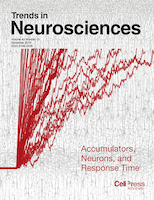
AIMS Neuroscience
metrics 2024
Bridging disciplines in the dynamic world of neuroscience.
Introduction
AIMS Neuroscience is an esteemed open-access journal published by the American Institute of Mathematical Sciences (AIMS), dedicated to advancing the field of neuroscience since its inception in 2014. With a robust ISSN of 2373-8006 and an E-ISSN of 2373-7972, this journal aims to provide a platform for innovative research and scholarly discourse that spans the diverse and dynamic landscape of the neuroscience discipline. As of 2023, it holds a respectable Q3 category ranking in the miscellaneous neuroscience field and ranks #65 out of 113 in general neuroscience according to Scopus, positioning it in the 42nd percentile for impact. AIMS Neuroscience encompasses a broad scope of topics, from neurobiology and cognitive neuroscience to computational models and neuroengineering, making it a vital resource for researchers, professionals, and students alike. The journal's commitment to open access ensures that cutting-edge research is freely available, fostering collaboration and knowledge sharing within the global neuroscience community.
Metrics 2024
 -
- 3.10
3.10 2.70
2.70 -
-Metrics History
Rank 2024
IF (Web Of Science)
JCI (Web Of Science)
Quartile History
Similar Journals

NEUROSCIENCE RESEARCH
Illuminating New Paths in Neuroscience ResearchNEUROSCIENCE RESEARCH, published by Elsevier Ireland Ltd, is a leading journal in the field of neuroscience, with a notable reputation for disseminating high-quality research that spans a variety of topics within the discipline. With an ISSN of 0168-0102 and an E-ISSN of 1872-8111, this journal serves as a vital platform for both established researchers and emerging voices in the field. Ranking in the Q2 quartile in both Medicine and Neuroscience categories, it has been recognized as a reliable source of innovative findings since its inception in 1984, with continuous publication through 2024. Although it does not currently offer Open Access options, the journal is indexed in Scopus, holding a significant position at Rank #48/113 in General Neuroscience, reflecting its contribution to advancing the understanding of neural mechanisms across various contexts. With its address anchored in Ireland, NEUROSCIENCE RESEARCH plays an essential role in bridging scientific inquiry and practical applications, making it an indispensable resource for researchers, professionals, and students dedicated to the burgeoning field of neuroscience.

TRENDS IN NEUROSCIENCES
Pioneering Insights for Neuroscience ProfessionalsTRENDS IN NEUROSCIENCES, published by CELL PRESS, is a leading journal in the field of neuroscience, offering cutting-edge insights and important developments in the rapidly evolving landscape of brain research. With an impressive Impact Factor and ranking in the top quartile (Q1) of the category for Neuroscience (miscellaneous), it is positioned as a vital resource for researchers and professionals seeking to stay abreast of the latest discoveries and trends from 1978 to the present. Specifically ranked #3 out of 113 in General Neuroscience by Scopus, this journal promotes the interdisciplinary exchange of ideas and knowledge, making it an essential platform for students and experienced scholars alike. Although it is not an Open Access journal, its value lies in its rigorous peer-review process and commitment to maintaining the highest standards of academic integrity. By continuing to explore the complexities of neural processes and behavior, TRENDS IN NEUROSCIENCES plays a crucial role in shaping the future of neuroscience research and education.

NEUROREPORT
Illuminating the path of neurological discovery.NEUROREPORT is a distinguished journal in the field of neuroscience, published by Lippincott Williams & Wilkins. With an ISSN of 0959-4965 and an E-ISSN of 1473-558X, the journal has established itself as a vital platform for disseminating innovative research and developments in the dynamic area of neuroscience since its inception in 1990. Currently, it is positioned in the Q3 category of the 2023 Journal Rankings, reflecting its respectable standing within the community of neuroscience professionals, ranked #74 out of 113 in general neuroscience on Scopus, placing it in the 34th percentile. While it operates on a traditional subscription model, NEUROREPORT is committed to fostering knowledge sharing in the realm of neurobiology, neuropharmacology, and cognitive studies among researchers, professionals, and students alike. With its broad scope and commitment to scientific excellence, the journal continues to be a cornerstone for those seeking to stay ahead in the evolving landscape of neurological research.

HUMAN BRAIN MAPPING
Innovating techniques for a deeper understanding of the mind.HUMAN BRAIN MAPPING, published by Wiley, is a premier journal in the field of neuroscience, devoted to comprehensively advancing understanding of brain structure and function through innovative mapping techniques. With an impressive impact factor and ranked in the Q1 category across multiple relevant disciplines—including Anatomy, Neurology, and Radiology—this journal is recognized as a vital resource for researchers and professionals passionate about the complexities of the human brain. Founded in 1993 and continuously publishing groundbreaking research, HUMAN BRAIN MAPPING is essential for those looking to stay at the forefront of developments in anatomical and neurological research. Though it does not currently offer Open Access options, the journal remains committed to disseminating high-quality research that influences clinical practices and academic inquiry. Its esteemed position within Scopus highlights its significance; charting at the top percentiles across various medical and health fields serves as a testament to the critical contributions made by the authors and researchers involved. As it converges toward 2024, HUMAN BRAIN MAPPING continues to be the go-to platform for publishing pivotal insights into the intricacies of brain mapping methodologies and applications.

Cognitive Neurodynamics
Innovative Insights into Cognitive Processes.Cognitive Neurodynamics is a leading journal in the field of cognitive neuroscience, published by Springer in the Netherlands. With an ISSN of 1871-4080 and an E-ISSN of 1871-4099, this journal has established itself as a prominent platform for innovative research from its inception in 2007, continuing to enrich the academic landscape through 2024. Recognized for its significant contributions, Cognitive Neurodynamics holds a Q2 quartile ranking in cognitive neuroscience and impressively ranks #27 out of 115 in the Scopus database, placing it in the 76th percentile among its peers. While the journal is not open access, it offers a wealth of studies focusing on the intricate dynamics of cognitive processes and neurobiological mechanisms, making it essential reading for researchers, professionals, and students alike. Its objective is to bridge the gap between theoretical insights and practical applications, fostering a deeper understanding of cognition through multidisciplinary approaches. Explore the latest advancements in cognitive dynamics and contribute to the evolving dialogue within this fascinating field.

Brain and Behavior
Exploring the Nexus of Neuroscience and Behavior.Brain and Behavior is a premier open-access journal published by WILEY, dedicated to advancing the field of Behavioral Neuroscience. With its ISSN 2162-3279, the journal has established itself as a vital resource for researchers, professionals, and students alike, fostering the dissemination of cutting-edge research since its inception in 2011. Renowned for its rigorous peer-review process, it enjoys a commendable Q2 ranking within the field, reflecting its impactful contributions and relevance in the scientific community. The journal not only emphasizes innovative studies that bridge behavioral science and neuroscience but also serves as a platform for diverse methodologies and interdisciplinary approaches. Accessible [open access](https://onlinelibrary.wiley.com/journal/21623279), Brain and Behavior invites submissions that explore the neural mechanisms underlying behavior, aiming to engage a global audience eager to expand the boundaries of knowledge in this dynamic field. Positioned in the heart of the United States, at 111 River St, Hoboken, NJ, it is strategically placed to collaborate with leading institutions and researchers worldwide.

BRAIN RESEARCH BULLETIN
Advancing the frontiers of neuroscience research.BRAIN RESEARCH BULLETIN is a leading academic journal published by PERGAMON-ELSEVIER SCIENCE LTD, dedicated to the dissemination of high-quality research in the interdisciplinary field of neuroscience. Since its inception in 1976, this journal has served as a vital platform for researchers, professionals, and students interested in a broad spectrum of topics within neuroscience, making significant contributions to the understanding of brain function and its associated disorders. With a commendable impact factor and a current Scopus rank of #35 out of 113 in general neuroscience, the journal holds a Q2 quartile ranking, underscoring its relevance and influence in the academic community. BRAIN RESEARCH BULLETIN invites submissions of original articles, reviews, and brief communications, enhancing scholarly communication within this dynamic field. Although the journal is not open access, it ensures widespread reach and impact through various subscription models, allowing access to pivotal findings that pave the way for future research advancements. For researchers aiming to share impactful discoveries and insights within the neuroscience community, BRAIN RESEARCH BULLETIN remains an essential outlet.

Brain Communications
Innovative Insights into Neurobiology and Mental HealthBrain Communications is an esteemed, open-access academic journal published by Oxford University Press since 2019, focusing on the dynamic field of neuroscience. With a dedicated ISSN and an E-ISSN of 2632-1297, this journal aims to address the intricate relationships between brain functions, psychiatric disorders, and neurobiological mechanisms. The journal stands out in the academic realm, holding a prestigious Q1 ranking across several categories, including Biological Psychiatry, Cellular and Molecular Neuroscience, Neurology, and Psychiatry and Mental Health for 2023. Notably, it has also secured impressive Scopus ranks in various neuroscience and psychiatry fields, evidencing its commitment to high-quality research. With an impact factor reflective of its growing influence, Brain Communications provides accessible research findings to professionals, researchers, and students alike, fostering a deeper understanding of complex neurological phenomena. This innovative journal is pivotal for anyone involved in advancing knowledge in neuroscience and mental health.

Translational Neuroscience
Bridging Lab Discoveries with Clinical Insights.Translational Neuroscience, published by DE GRUYTER POLAND SP Z O O, is a leading open-access journal since its inception in 2015, dedicated to the multidisciplinary exploration of neurological research and its clinical applications. With an ISSN of 2081-3856 and an E-ISSN of 2081-6936, the journal serves as a crucial platform for scholars and practitioners to disseminate innovative findings and theoretical advancements in the field of neuroscience. Covering various aspects of general neuroscience, it is ranked in the Q3 quartile for 2023 and positioned at Rank #75 out of 113 in its category, reflecting its growing impact within the scientific community. The journal strives to bridge the gap between laboratory research and clinical practice, fostering collaboration among researchers, clinicians, and educators. The editorial team is committed to maintaining high publication standards that engage the audience with rigorous research while promoting a culture of open science. For those interested in the forefront of neuroscience research, Translational Neuroscience offers an invaluable resource for knowledge and innovation.

EXPERIMENTAL BRAIN RESEARCH
Pioneering Research for a Deeper Insight into NeurologyEXPERIMENTAL BRAIN RESEARCH is a renowned journal published by SPRINGER, dedicated to advancing understanding in the field of neuroscience. With a history dating back to 1966, this journal offers valuable insights into the mechanisms of brain function and neurological disorders, making it a vital resource for researchers, professionals, and students alike. While it currently holds a Q3 classification in the field of Neuroscience (miscellaneous) and ranks #73 out of 113 in Scopus's General Neuroscience category, it continually contributes to fostering innovative research and collaborative dialogue. The journal is not open access, ensuring that although content is subscription-based, it maintains a high standard of peer review and scholarly rigor. By covering a breadth of topics relevant to both experimental and theoretical aspects of brain research, EXPERIMENTAL BRAIN RESEARCH serves as an essential platform for disseminating cutting-edge discoveries and theories in the dynamic realm of neuroscience.